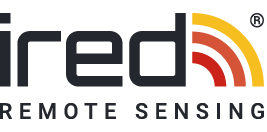The UK Government has become the first major economy to pass a net zero emissions law, with a commitment to reduce all greenhouse gas emissions to net zero by 2050. A major part of this is to be achieved through improvements in energy consumption within the built environment.
The energy used to heat the spaces we live and work in is one of the highest contributors to our individual carbon footprints. Globally, heat accounts for nearly half of all energy consumption and 40% of energy-related carbon dioxide emissions (BBC, 2020). The carbon footprint of heating, however, is only one half of the story. In order to create a sustainable future, our homes and buildings need to be heated efficiently. This means trapping in the heat we generate, instead of allowing it to leak out.
Whilst considerable efforts have been made towards constructing thermally efficient buildings, along with retrofitting older building stock, there is still no mechanism to provide verifiable evidence as to the actual performance of a building. Far too often there are discrepancies between what’s been designed and what’s been built, in turn creating large performance gaps through all stages of the building life cycle.
Thermal imaging is a technique that uses heat-sensitive cameras to detect subtle differences in temperature, and is the only non-destructive method for assessing heat loss in residential and commercial buildings. As an inspection tool, thermal imaging is able to accurately pinpoint areas for improvement, as well as being able to monitor the effectiveness of any remedial works.
Despite numerous initiatives attempting to reduce energy consumption, energy use in buildings has grown continuously over the past twenty years. In order to achieve a net zero economy, it’s now paramount that innovative technologies such as thermal imaging are employed on a global scale to ensure decarbonisation by 2050.
Sustainable Futures
Achieving a sustainable future means developing and retrofitting buildings to meet the needs of today, without compromising the needs of the future. With the global thermal imaging market expected to reach £11.3 billion by 2026 (Global Market Insights, 2019), iRed® is proud to be at the forefront of industry, pioneering new techniques for innovative technologies in an effort to revolutionise the inspection industry and move the global economy to net zero emissions. From training and equipment, to surveys and consulting – we’re here to help.
To find out more about how our team can help you achieve net zero emissions, get in touch on 01243 370 296 or email us at [email protected]

